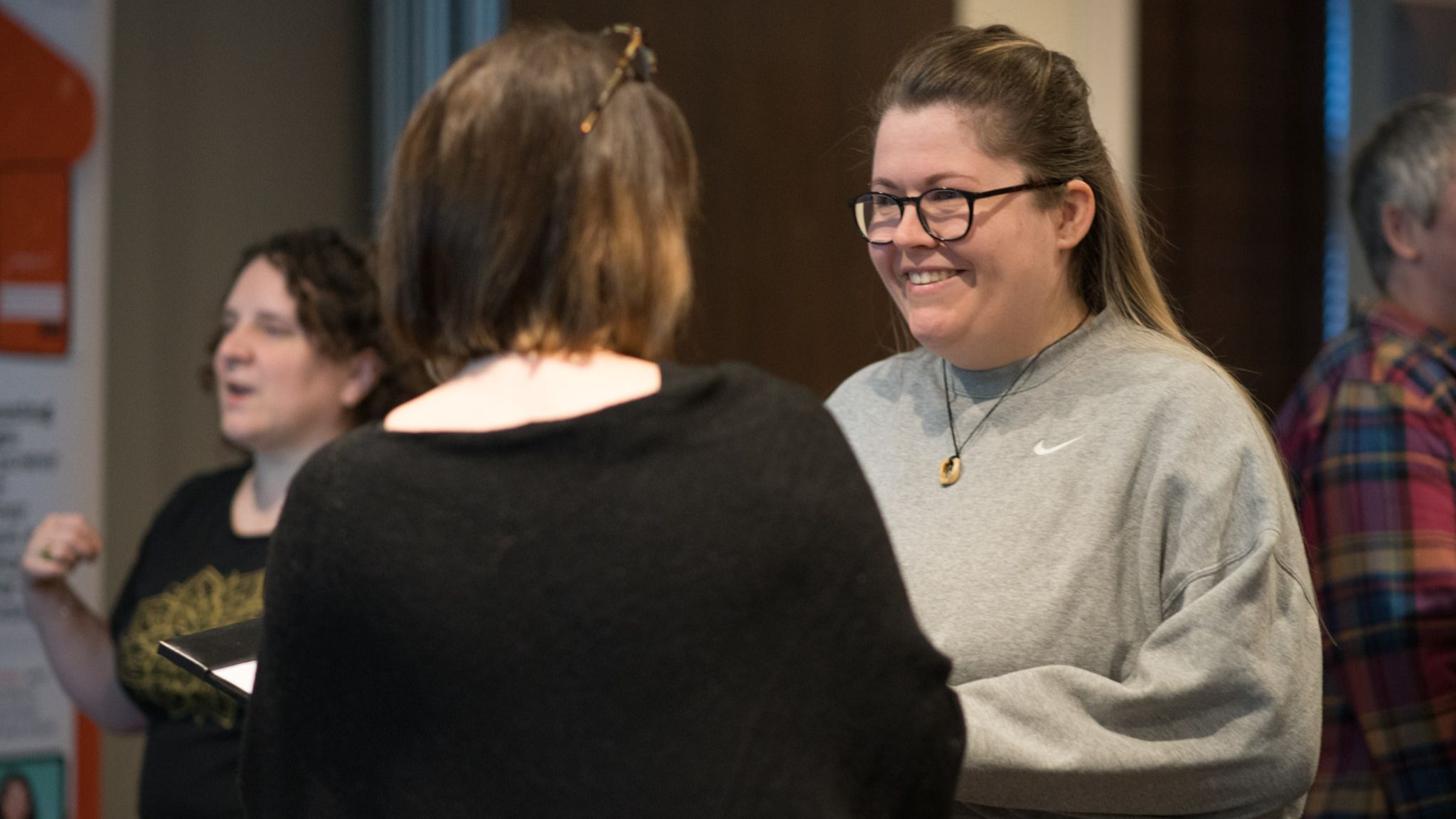Driving, Community, Values, Identity

Driving as a Community Practice, a Values Exercise, and an Identity Formation
Learning to drive has long been framed as a technical challenge: master the skills, memorise the rules, pass the test. But if we step back and ask what driving really is, the picture changes. Driving is not merely about moving a car from a to b. Driving is a community practice, a values-driven exercise, and a powerful moment of identity formation. Recognising this as trainers shifts our understanding of what driver education should be. And it points us toward one unavoidable conclusion: coaching must be at the centre of how we develop new drivers.
Driving as a Community Practice
Every time we enter the road system, we enter into a collective. Roads are shared infrastructures, and driving is a social negotiation. Each decision we make affects not just ourselves, but dozens of other people—some in cars, some on bikes, some on foot. Yet most training treats driving as an individual skillset: turn the wheel thi...
Coaching with Parents

Coaching with Parents: A Partnership That Creates Safer Drivers for Life
Learning to drive is a major milestone for any young person and for their family. But what often gets overlooked is how vital a role parents and guardians play in shaping the attitudes, habits, and decision-making of a newly qualified driver. As driving instructors and coaches, our job is to lay the foundations. But to truly embed safe driving behaviours, we need support from home.
This isn’t just about rules or supervision, it’s about creating a coaching environment where learning continues long after the L plates come off.
Parents Are Driving Influencers
According to the National Standard for Driver and Rider Training, good driving instruction isn’t just about skills, it’s about developing drivers who can self-evaluate, reflect on their performance, and take ownership of their development (Unit 6.2 & 6.3). This includes understanding how behaviour, emotion, and peer pressure can influence choices on the r...
Goals for Driver Education

Why Teaching Emotions Matters as Much as Teaching Steering
When we teach learner drivers, we spend hours perfecting clutch control, steering technique, and mirror checks. These are vital skills, but they are not the full picture. If we’re serious about developing safe, thoughtful, self-aware drivers, we must give equal (if not greater) attention to helping young people understand the role emotions play in driving.
Anger, stress, anxiety, overconfidence - these are major contributors to risky decisions on the road. A learner can have excellent car control and still make unsafe choices when emotional pressure hits. Whether it’s reacting to a near miss, driving after an argument, or trying to impress friends, emotions often override technical skill.
This isn’t just our opinion. it’s what the GDE Matrix (Goals for Driver Education) is trying to tell us. The higher levels of the matrix (decisions around personal goals, emotional state, and risk awareness) are the real root causes of cra...
Meet the Parents

We've been enjoying the excellent road safety community over at Co-Pilot, ably hosted by Elizabeth Box and James Evans.
One of the latest papers to be shared on the site focuses on "Teen Driving Experience and Exposure".
(Outcomes of Variability in Teen Driving Experience and Exposure
Evidence from Naturalistic Driving Studies
(2025))
One of the key findings from this research showed that US teens who had access to their own vehicle had higher safety-critical event (SCE) rates compared to teens who shared a family vehicle.
From the paper, "This finding suggests that delayed or restricted solo access could help mitigate crash risk during the critical early months of independent driving."
This paper is not the main point of this post, however. The point of this post is our position that parents deserve to be aware of this kind of data when considering purchasing a new vehicle for their 17/18-year olds. Good data helps decision-making.
In the UK, however, communication between parents of l...
Shifting the Paradigm - Part One

ADI and Parent Communication.
If you sit at the test centre, or in a Facebook Group, for long enough, eventually you will find an ADI complaining about a parent only being interested in getting their child through their driving test as quickly as possible.
There are two ways for ADIs to deal with this kind of challenge. The first is to accept that it’s just part of the job, try to ignore it, and complain about it to colleagues. We can even get a laugh out of it (😂) if we paint the scenario well enough.
The second way is to be a bit more reflective and consider the opportunities. Parents have been rushing their children through driving lessons for over 50 years. As an industry, we’re brilliant at complaining about it, but hardly anyone ever tries to do anything about it.
The fact is that the way we train people to drive has (hopefully) changed. As a result, we need to be able to effectively communicate this to our customers.
If you are an ADI keen to address the higher levels o...
Coachee

I've just signed up for some coaching.
I last worked with a coach as part of my coursework for my EMCC Level 5 qualification in Effective Coaching and Mentoring a couple of years ago.
Even though I was being coached by someone like me, someone who was still in training to become a coach, the power of the models we were using and the genuine curiosity of my coach around my obstacles, and her willingness to help me resolve my own issues, was pivotal in the creation of Bright Coaching and the Professional Diploma.
At that time, I doubted my ability to bring to life the vision I had in my head for Bright Coaching. I experienced self-doubt, imposter syndrome, crippling procrastination, and decided - definitively - twice - that it was never going to happen.
I'd go as far to say that Bright Coaching only exists because of my coach. So. Thank you, Meg .
Why am I returning to coaching? Because it works.
At the risk of over-sharing, I'm feeling a little frazzled. I'm not stressed -...
Change

A New Part Three Training Qualification?

"There was an interesting post on Facebook this morning. I regret seeing it because it’s going to take over my morning as I now have to write this piece. (Incidentally, I recently discovered that I was spending almost 4 hours per day on my phone. 25% of the time I spend awake. I had to make some changes.)
Anyway. I was on Facebook. And the DITC asked what I would do if I was CEO of the DVSA.
Now, the DVSA is in a mess which means that it was no surprise to see ADIs calling them out on the current shambles of test waiting times, lack of examiners, lack of budget from the DfT etc.
Gareth Marchant got me thinking, though. He suggested separating vehicle testing from training and moving the training side out of the Department of Transport and into the Department of Education. Wise man. Great start.
The first thing that came to mind for me when I looked at the post was how would I overhaul the ADI training system. How would I change things for a better future, as opposed to getting thi...
Behavioural Interventions

At Bright Coaching, we recognise and understand the importance of behaviour on road safety. Drivers do not crash because of a lack of skill - they crash because of decisions made internally, and these decisions are often sub-conscious and based on desired outcomes.
For example, a young driver may choose to speed to impress his friends. Or a delivery driver may attempt a dangerous overtaking manoeuvre so she avoids getting into trouble from her boss for being late. Or a son driving on the motorway chooses to answer a call from his mother on his hand-held mobile because she’s rang once already - it could be urgent.
As driving instructors, our responsibility is to keep up to date with the latest research on the evidence-based methods which have been shown to have an effect on behavioural decisions.
Why?
Because informing young people of potential consequences of risky driving behaviour is no longer enough.
Why not?
Because young people are not stupid - they already understa...
Azjen's Theory of Planned Behaviour
Why do we behave the way that we do?
And more annoyingly, why do we not follow through on what we thought were desired behaviours?
What influences young people when it comes to behaviour?
The Theory of Planned Behaviour (Azjen, 1991) is a model which attempts to explain.
This short webinar is part of the Pre-Work for the Bright Coaching Professional Diploma in Coaching, Behavioural Change, and Driver Psychology.

